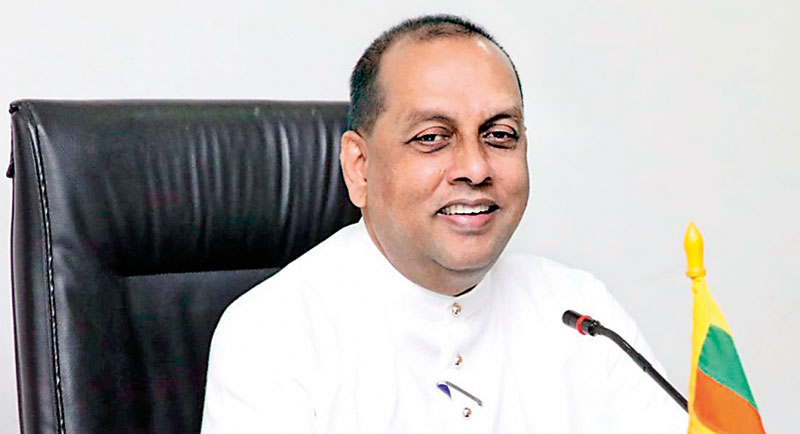Tuesday Feb 17, 2026
Tuesday Feb 17, 2026
Saturday, 1 January 2022 01:55 - - {{hitsCtrl.values.hits}}

Environment Minister Mahinda Amaraweera
Bloomberg: Sri Lanka’s federal Cabinet will meet on Monday to decide whether or not to seek bailout funds from the International Monetary Fund (IMF) as the nation struggles with limited options to address upcoming debt maturities.
The group of ministers will be joined by Central Bank Governor Ajith Nivard Cabraal as well as Treasury Secretary Sajith Attygalle, according to Environment Minister Mahinda Amaraweera, whose Sri Lanka Freedom Party members have favoured approaching the Washington-based lender. However, the idea is opposed by some members of other parties that make up the country’s ruling coalition.
“There is nothing wrong in going to the IMF,” Amaraweera said Wednesday, referring to the lender’s debt that usually comes with a series of fiscal, monetary and regulatory conditions that are seen by many as interfering with a country’s sovereign and economic interests.
“We do not have to accept all the IMF conditions,” he said.
The IMF, last year, prematurely ended a loan program to Sri Lanka after disbursing $ 1.3 billion of an agreed $ 1.5 billion facility, leaving the nation scouting for ways to tide over the pandemic-induced downturn. In the absence of revenue from tourism, which until recently made up some 5% of the economy, Sri Lanka has turned to countries, including China and India, for emergency support amid a weak foreign-reserves position.
The island nation has $ 500 million of bonds due 18 January and another $ 1 billion in July. Rating companies, including Fitch Ratings and Moody’s Investors Service, recently cut the sovereign’s credit score deeper into junk territory, citing delays in the Government’s fund-raising efforts.
“The country was ruled under IMF conditions from 2016 to 2019,” said Trade Minister Bandula Gunawardena, who represents the Sri Lanka Podujana Party of President Gotabaya Rajapaksa.
“It is under those conditions that value added tax was raised. It was under those conditions that they tried to protect the currency. But it was not successful.”